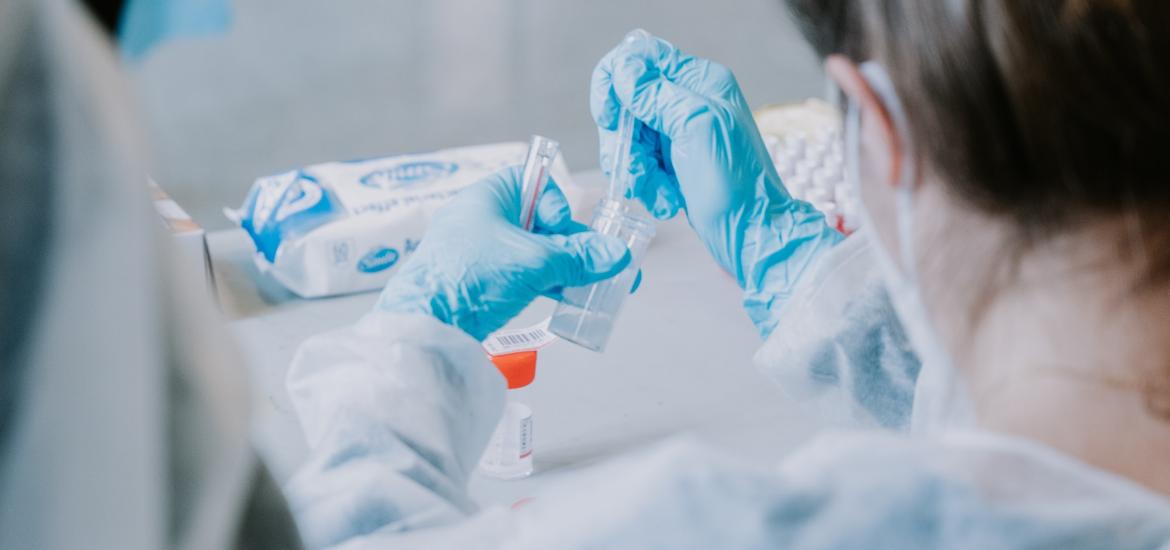
Three mystery phase 1 entrants
Bristol, AbbVie and Jiangsu HengRui move to enter clinical trials with undisclosed mechanisms of action.
Bristol, AbbVie and Jiangsu HengRui move to enter clinical trials with undisclosed mechanisms of action.

The latest disclosed first-in-human studies include three molecules from Bristol Myers Squibb, AbbVie and Jiangsu HengRui that have undisclosed mechanisms, in addition to novel assets from three low-profile biotechs and a Tango Therapeutics synthetic lethality project whose target has been the subject of recent deal activity.
That target is USP1, a field Roche, Exelixis and Debiopharm have bought into through licensing deals this year. Tango also boasts a presence in PRMT5, another synthetic lethality mechanism, which has reportedly prompted Sanofi to consider acquiring Mirati.
Tango’s USP1 inhibitor TNG348 is expected to start phase 1 in December. The study’s clinicaltrials.gov listing reveals that the molecule will be tested alone or on top of PARP blockade in solid tumours that either exhibit BRCA1/2 mutations or are positive for some other homologous recombination deficiency.
Novel mechanisms
Meanwhile, Kancera, a listed Swedish company focused on fractalkine blockers, is taking the CX3CR1 inhibitor KAND145 into phase 1, while the private US biotech Stingray has listed a first-in-human trial of SR8541A, an inhibitor of ENPP1.
Both mechanisms are novel, and OncologyPipeline reveals no other industry-owned CX3CR1 inhibitors. Fractalkine (CX3CL1) is a transmembrane protein and chemokine involved in the adhesion and migration of leukocytes, and CX3CR1 is its receptor; Kancera is also using the approach to develop projects for myocardial infarction and kidney damage.
ENPP1 blockade is the subject of 11 active industry projects, and apart from Stingray’s only Riboscience’s RBS2418 and TXINNO Bioscience’s TXN10128 are in clinical trials. ENPP1 inhibition is said to be a superior way of targeting Sting than direct intratumoural agonism, an approach that has disappointed clinically, but in which several players remain active.
Recently disclosed first-in-human studies*
| Project | Mechanism | Company | Trial | Scheduled start |
|---|---|---|---|---|
| CF33-CD19 | CD19-expressing oncolytic virus | Imugene | Blincyto combo in solid tumours | Sep 2023 |
| BMS-986460 | Undisclosed degrader | Bristol Myers Squibb | mCRPC in patients progressed on androgen deprivation + Zytiga/Xtandi | 23 Oct 2023 |
| SHR-5495 | Undisclosed | Jiangsu HengRui | Ph1 in various cancers | Oct 2023 |
| KAND145 | CX3CR1 antagonist | Kancera | KAN0008 trial in volunteers | Oct 2023 |
| SR8541A | ENPP1 inhibitor | Stingray Therapeutics | Ph1 safety & PK study | Oct 2023 |
| ABBV-787 | Undisclosed | AbbVie | Ph1 in r/r AML | 22 Nov 2023 |
| TNG348 | USP1 inhibitor | Tango Therapeutics | +/- PARP inhibitor in BRCA1/2m or HRD+ cancers | Dec 2023 |
| KB-GDT-01 | Allogeneic γδ T cells | Kiromic BioPharma | Radiotherapy combo in NSCLC | Dec 2023 |
Note: *projects newly listed on the clinicaltrials.gov database between 28 Sep and 6 Oct 2023.
Another approach that has disappointed is oncolytic viruses. This is the modality of a separate project newly into phase 1, namely Imugene’s CF33-CD19, though in contrast to unmodified oncolytic viruses this one is souped up to express CD19, thus turning infected cells into natural targets for CD19-directed therapy.
On the other hand, gamma-delta T-cell therapy has notched up an early success, courtesy of Adicet's ADI-001. Entering phase 1 in December will be Deltacel (KB-GDT-01), a gamma-delta therapy in development by Kiromic, a biotech that recently began trading over the counter after seeing its stock delisted from Nasdaq.
The final three assets newly listed as starting phase 1 in the past few days are SHR-5495 from Jiangsu HengRui, AbbVie’s ABBV-787 and Bristol’s BMS-986460. The mechanisms of these are not disclosed, and the only clue to AbbVie’s so far is that it’s being tested in acute myelogenous leukaemia. SHR-5495 is said to activate tumour immune cells by utilising PD-1 expression differences to avoid peripheral T-cell overactivation.
BMS-986460 is a ligand-directed degrader for prostate cancer, an approach highlighted at Bristol’s R&D day last month. However, it doesn’t degrade the androgen receptor – that’s the modality of Arvinas’s bavdegalutamide as well as Bristol’s own BMS-986365, which is already in clinical trials.
This is an updated version of a story published earlier.
3216













